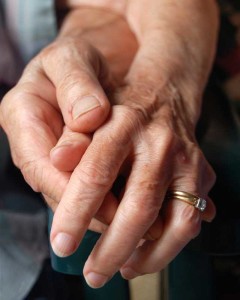
ALBANY, N.Y. — New York’s highest court has unanimously upheld the state’s ban on physician-assisted suicide, concluding that it does not violate New York’s Constitution.
The New York Court of Appeals ruled 5-0 that there is no “fundamental right to die,” and that the provision of lethal pills from a physician falls within the state’s prohibition on helping a person kill themselves.
“Although New York has long recognized a competent adult’s right to forgo life-saving medical care, we reject plaintiffs’ argument that an individual has a fundamental constitutional right to aid-in-dying as they define it,” it wrote. “We also reject plaintiff’s assertion that the state’s prohibition on assisted suicide is not rationally related to legitimate state interests.”
“Contrary to plaintiffs’ claim, we have never defined one’s right to choose among medical treatments, or to refuse life-saving medical treatments, to include any broader ‘right to die’ or still broader right to obtain assistance from another to end one’s life,” the court declared.
The legal challenge to allow physician-assisted suicide had been brought the group End of Life Choices, as well as three residents with terminal illnesses who sought to end their lives. During oral argument, attorneys for the plaintiffs argued in court that “aid in dying” differs from suicide, and that the lower courts had wrongfully used the “dictionary definition” of suicide in upholding the state ban on the practice.
“Issues of causation and intent are what differentiate lawful treatment from unlawful treatments,” attorney Ed Schallert contended. “[W]e don’t view it as suicide, your honor. We view this as something different. It’s a medically and ethically appropriate treatment.”
View the oral argument in full below.
However, in its ruling on Thursday, the New York Court of Appeals agreed with the lower courts that the provision of a lethal dose of medication to hasten death does indeed fall under the legal definition of suicide.
“Plaintiffs initially assert that we should interpret the assisted suicide statutes to exclude physicians who provide aid-in-dying. Such a reading would run counter to our fundamental tenets of statutory construction, and would require that we read into the statute words and meaning wholly absent from their text,” it wrote.
“Suicide has long been understood as ‘the act or an instance of taking one’s own life voluntarily and intentionally.’…Black’s Law Dictionary defines ‘suicide’ as ‘[t]he act of taking one’s own life,’ and ‘assisted suicide’ as ‘[t]he intentional act of providing a person with the medical means or the medical knowledge to commit suicide,'” the panel outlined. “Aid-in-dying falls squarely within the ordinary meaning of the statutory prohibition on assisting a suicide.”
It concluded therefore that there is no “fundamental constitutional right to aid-in-dying” and that New York has a “rational basis for criminalizing assisted suicide.” However, it left the matter open to the legislature.
“[T]he state has a significant interest in preserving life and preventing suicide,” the court wrote. “Suicide presents a ‘serious public health problem,’ often plaguing those who ‘suffer from depression or other mental disorders’—conditions that may be difficult to diagnose. The availability of assisted suicide would therefore undermine the state’s interest in preventing suicide in cases involving, for instance, untreated depression, coercion, or improperly managed pain.”
“Additionally, the state has a substantial interest in guarding against the risks of mistake and abuse,” it continued. “Physicians are often unable to accurately ascertain how much time a terminally ill patient has remaining, or may misdiagnose an illness as terminal, thereby creating a risk that patients will elect assisted suicide based on inaccurate or misleading information.”
Pro-life groups cheered the development upon release of the decision.
“The Court’s decision does three important things,” Jason McGuire, executive director of New Yorkers for Constitutional Freedoms, said in a statement. “First, it demonstrates respect for the Constitution of the State of New York. Nothing in our state’s Constitution in any way affirms physician-assisted suicide, and the court acknowledged that reality. Second, the decision upholds the role of the legislature as policymaker. Third, the decision recognizes that the state ‘has a significant interest in preserving life and preventing suicide, a serious public health problem.'”
“Now that this court battle is over, New Yorkers for Constitutional Freedoms looks forward to continued success in defeating efforts to pass physician-assisted suicide legislation,” he remarked. “Our state can do better than physician-assisted suicide, and people living with terminal illnesses deserve better than physician-assisted suicide.”
End of Life Choices had not released a statement as of press time.
Become a Christian News Network Supporter...


